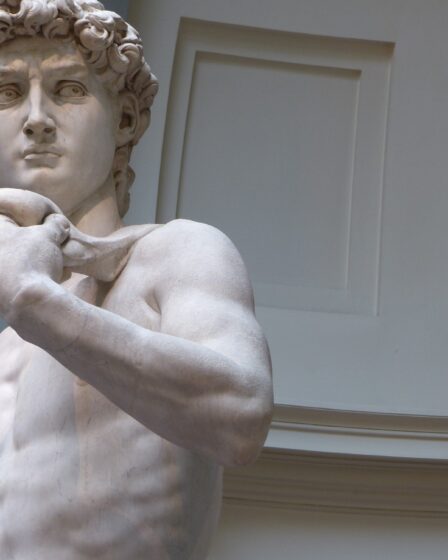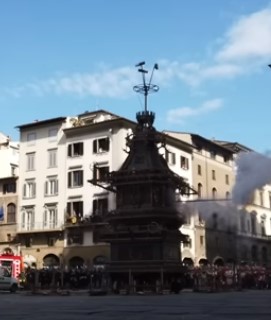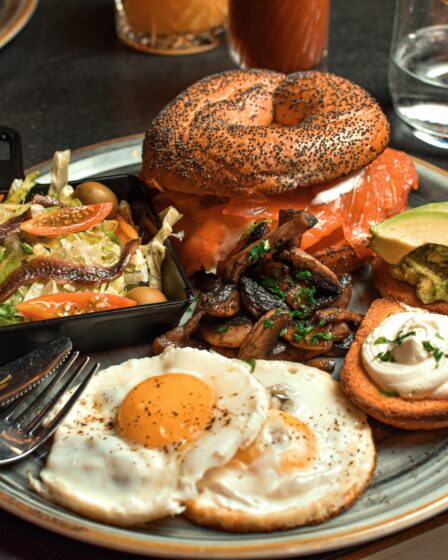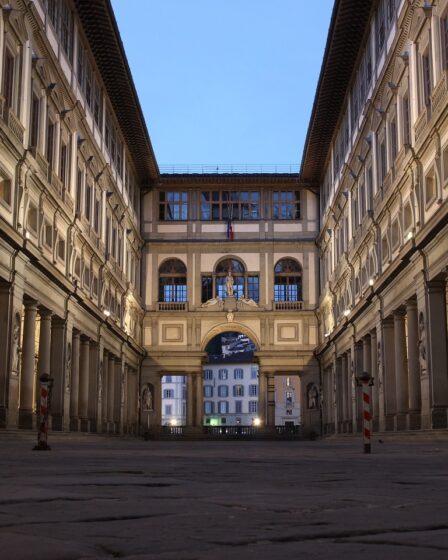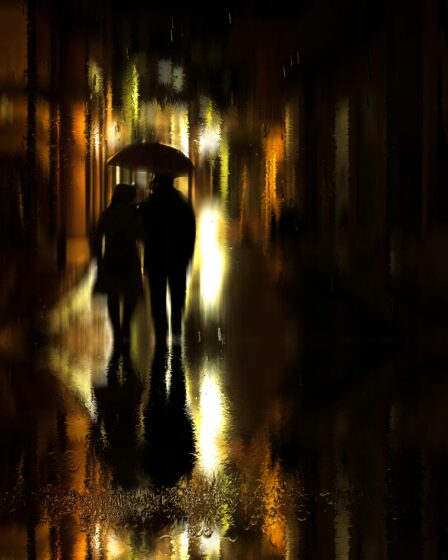Michelangelo collected Etruscan works … Well yes, Michelangelo Buonarroti collected works from the Etruscan period, but it was not the famous Michelangelo that we all know, but the great -grandson that in the first decades of the seventeenth century, the preparation of the family home began in via Ghibellina in memory of the illustrious ancestor. In addition to making four rooms decorate from the best Florentine artists of the moment such as: Pietro da Cortona, Artemisia Gentileschi, Domenico Passignano, Cristofano Allori
Marzo 2024
Il Carroccio in Florence “II part”
Once deliberated to move against the enemy, the Florentine government used to order public prayers, and Martinella was played night and day, which was a bell, also called Bellifera for its connection with the war events, located in the arc of the door Saint Mary. This door, which gives its name to the current via Por Santa Maria, closed the first walls of Florence in the direction of the Ponte Vecchio, and was at the height of the current loggia of the new market (or Porcellino).
Scoppio del carro in Florence
On the morning of Easter day the magic of the “outbreak of the wagon” is renewed. The “Brindellone”, the “fire” chariot escorted by 150 armed, musicians and flag -wavers of the historic procession of the Florentine Republic, moves from the square of the lawn, driven by two pairs of white Bovi Infiorati, and arrives in Piazza del Duomo, where it is placed in the space between the baptistery and the cathedral. Then, at the song of the “Gloria in Excelsis Deo”, fire is set to the fuse of the Colombina who, by hissing, goes to fire the mortgages and fireworks expertly arranged on the cart.
Antico Vinaio at the train station SMN
Rather sorty, without great ads on the eve, All’ Antico Vinaio inaugurated a few minutes ago a new place in the city where it all was born, clearly in Florence. At 11:00 today, Friday 22 March, the owner Tommaso Mazzanti removed the card that hid the new shop, literally opening the door to those present, waiting, more with smartphones in hand to immortalize the scene.
Simonetta Vespucci the beauty of Florence
Simonetta Vespucci Cattaneo, a captivating figure of the Italian Renaissance, was born in 1453 into a prominent Florentine family. Renowned for her unparalleled beauty and elegance, Simonetta became a muse for renowned artists of her time, such as Sandro Botticelli and Piero di Cosimo. Her timeless allure is immortalized in masterpieces like Botticelli’s “The Birth …
Leonado da Vinci and its secret
he great Leonardo, an absolute genius in many fields, from artistic to the scientific, was a man with great inventiveness, and all the drawings he left us and who, after centuries, are still current and often used, demonstrate it. But Leonardo was not only this: Leonardo loved good cuisine and loved to show off his culinary skills, even if he often did not meet the consent of his diners!
Geometric illusion on the Cathedral’s Floor
Florence, in Santa Maria del Fiore. This floor is completely flat. The remarkable optical illusion of the seventeenth century of the marble tiles of the Florence Cathedral. View from above, the intricate geometry creates the illusion of a giant abyss in which people could come across. The red, white, black and green marble floor was a colossal task to complete it took 160 years. It was created by the Grand Ducal Laboratories of Florence, led by the Renaissance sculptor Baccio d’Agnolo, and completed in 1660.
Mariotto Albertinelli the painter chef
Next to Dante’s alleged house in the homonymous street, a place with a great story behind him in the square of S.Martino. It is a place founded by a famous painter of the time, Mariotto Albertinelli. Born in Florence on October 13, 1474 from Biagio by Bindo Albertinelli, he began his career before in the shop of the goldsmith’s father and subsequently in that of Cosimo Rosselli.
Via dell Inferno in Florence
In the heart of Florence, narrow in the streets that pulsate with history and secrets, there is via dell’ Inferno, ” Hell street ” an alley that many passers -by cross without noticing, distracted by the surrounding beauty of the city. However, this place hides a forgotten story, a plot that is intertwined with the fate of those who dared to travel it after sunset. It is said that centuries ago, via dell’ Inferno was the favorite passage from a mysterious character known as the craftsman of the shadows.
Zoo in Florence at Boboli Garden
Towards the end of the 1600s, Grand Duke Cosimo III had created in his residence of Palazzo Pitti, an area used as a small zoo, where “very rare animals conducted by the most remote regions were placed …” as in other European courts, also the family Of the doctors, he wanted to create a mènagerie (in Italian Serraglio, derives from the Latin Serraculum indicating a enclosure or closed part) practically a structure consisting of a series of cages or fences, where animals and birds were held.

